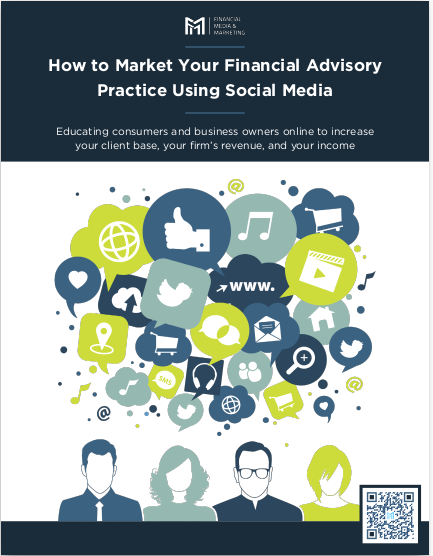Key Takeaways:
-
Building a strong personal brand helps you stand out and attract opportunities tailored to your strengths and expertise.
-
Personal branding isn’t just about visibility—it’s about creating a lasting impression that resonates with the right audience.
Why Personal Branding Is Essential for Financial Advisors
As a financial advisor, your reputation precedes you. Your expertise, approach, and unique value are what attract clients, but how do you make sure they see you? That’s where personal branding comes in. A strong personal brand communicates who you are, what you do, and why you’re the best choice—all before a conversation even begins.
Gone are the days when word-of-mouth referrals were enough. Today, potential clients are researching online, comparing options, and looking for professionals they feel a connection with. By crafting an authentic and professional personal brand, you set yourself apart and build the trust needed to foster long-term relationships.
Defining Your Personal Brand
What Makes You Unique?
Your personal brand starts with understanding your unique value proposition. Think about:
-
Your expertise: What do you specialize in?
-
Your approach: How do you work with clients?
-
Your values: What drives your passion for helping others?
Write these down and refine them into a clear and compelling statement. This will serve as the foundation for your personal brand.
Aligning with Your Target Audience
It’s not just about you—it’s about your audience, too. Who are your ideal clients? Are they young professionals navigating their first investments, or retirees looking to maximize their savings? Tailor your personal brand to resonate with the clients you want to attract. This means using language, visuals, and platforms that align with their preferences and expectations.
Building Your Online Presence
Create a Professional Website
Your website is often the first stop for potential clients, so make it count. Include:
-
A clear and concise “About Me” page that highlights your expertise and values.
-
Easy-to-navigate sections for services, resources, and contact information.
-
A blog or insights section to showcase your knowledge.
Ensure your website is mobile-friendly and visually appealing, with professional branding throughout.
Optimize Your LinkedIn Profile
LinkedIn is a must for financial advisors. To make the most of it:
-
Use a professional headshot and banner image.
-
Craft a compelling headline that captures your expertise and target audience.
-
Regularly post updates, articles, or insights to stay visible in your network.
Be Active on Relevant Platforms
While LinkedIn is essential, other platforms may also help you connect with your audience. Consider where your ideal clients spend their time and establish a presence there. For example, Twitter or YouTube might be valuable for sharing quick tips or in-depth videos on financial topics.
Engaging with Your Audience
Share Valuable Content
Content is king when it comes to personal branding. Sharing educational and engaging content not only showcases your expertise but also builds trust. Consider:
-
Writing articles or blog posts on common financial concerns.
-
Creating short videos explaining complex topics in simple terms.
-
Sharing curated industry news with your own insights.
Interact and Respond
Engagement goes both ways. Respond to comments on your posts, answer questions, and participate in discussions. This not only strengthens your brand but also makes you more approachable.
Network Online and Offline
Don’t underestimate the power of connections. Attend industry events, join online groups, and collaborate with peers. The relationships you build can expand your reach and reinforce your personal brand.
Leveraging Testimonials and Social Proof
Collect and Display Client Feedback
Positive reviews and testimonials are powerful tools for building trust. Ask satisfied clients for feedback and showcase it on your website or social media. Ensure you’re compliant with industry regulations when sharing client testimonials.
Highlight Professional Achievements
Awards, certifications, and milestones can enhance your credibility. Display these prominently in your profiles and website to reinforce your expertise.
Common Mistakes to Avoid
Being Inconsistent
A disjointed personal brand can confuse potential clients. Ensure your messaging, visuals, and tone are consistent across all platforms. Regularly update your profiles and website to reflect your current offerings and expertise.
Focusing Too Much on Yourself
While your personal brand is about you, it’s ultimately for your audience. Avoid making your content overly self-promotional. Instead, focus on providing value and solving problems for your clients.
Ignoring Analytics
Tracking metrics like website traffic, social media engagement, and lead generation helps you understand what’s working and what isn’t. Use this data to refine your strategy and focus on what resonates with your audience.
Evolving Your Brand Over Time
Adapt to Industry Trends
The financial landscape is always changing, and your personal brand should evolve with it. Stay informed about new trends, tools, and client concerns to keep your content relevant and valuable.
Seek Feedback
Ask trusted colleagues, mentors, or even clients for input on your personal brand. Their perspectives can help you identify strengths and areas for improvement.
Invest in Professional Development
Continuing education and certifications not only enhance your skills but also boost your brand. Highlight these achievements to show your commitment to excellence.
Transform Your Career Through Personal Branding
A well-crafted personal brand doesn’t just attract clients—it opens doors to speaking opportunities, collaborations, and other career advancements. By focusing on authenticity, consistency, and value, you create a brand that resonates with the right people and sets you up for long-term success.










